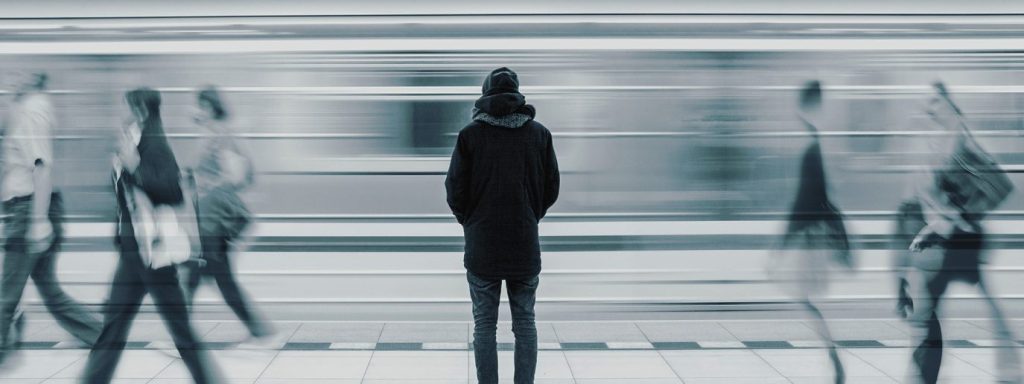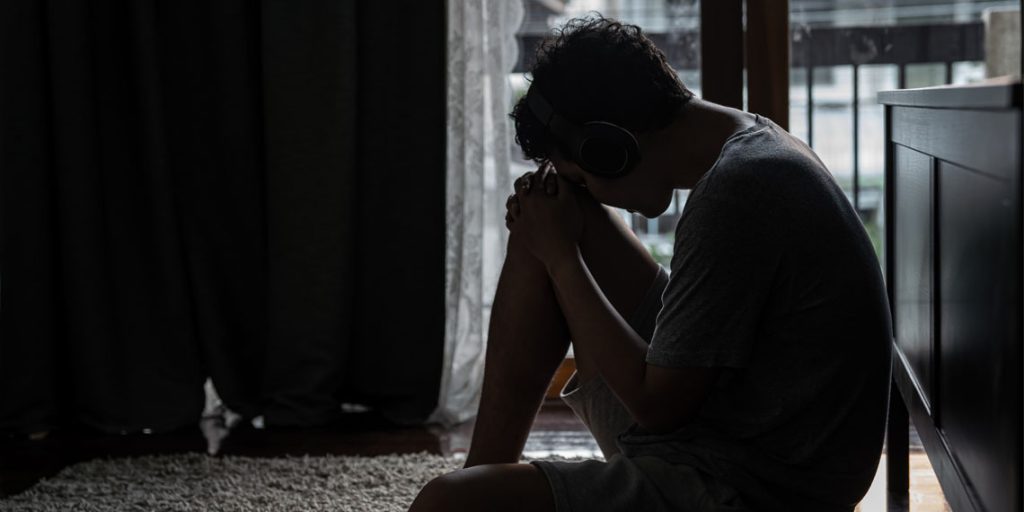Increased risk of total mortality linked with loneliness.
According to a comprehensive new meta-study, social isolation and loneliness both raise the risk of all-cause mortality.
Additionally, loneliness and social isolation are connected to an increased chance of passing away in cancer patients.
Social isolation, not loneliness, is linked to a higher mortality risk in people with heart disease. A link between social isolation, loneliness, and death has been confirmed by a recent study.

The authors looked into the connections between the two events and deaths from breast cancer, cardiovascular disease, and all other causes.
According to the extensive meta analysis, having a socially isolated lifestyle was linked to a 26% higher chance of dying from any cause than persons who did not have a socially isolated lifestyle.
Although the impact of loneliness was slightly less severe, it was nonetheless alarming: compared to those who were not lonely, those who were lonely for an extended period of time had a 14% increased chance of dying.
An increase in the probability of dying from any cause or from cancer was associated with both social isolation and loneliness. For those with cardiovascular illness, social isolation was likewise linked to an increased chance of passing away.
The meta-study examined the results of 90 distinct research with 2,205,199 participants.
Social isolation vs. loneliness
The study’s finding that social isolation had a bigger impact on mortality than loneliness is one of its more intriguing findings. The two ailments could appear to be similar. But they are not equivalent:
The term “social isolation” is used in the study to describe “an objective lack of (or limited) social contact with other people, and is characterized by a person having a small social network, having infrequent social contacts, or possibly living alone.”
On the other side, “loneliness” is “a subjective feeling of distress, emerging when there is a mismatch between desired and actual social relationships.”
For instance, it is possible to feel lonely in a group of people, even if those people are known, and it is also possible to be socially isolated without experiencing emotions of loneliness.
Effects of social isolation on health
According to Dr. Rosanne Freak-Poli, a senior research fellow in epidemiology at Monash University who was not involved in the study, “two landmark meta-analytical studies have identified that social isolation is a stronger risk factor for mortality than loneliness.”
Without being part in the study, Dr. Angelina R. Sutin, a professor at Florida State University’s College of Medicine, informed us that social isolation can be detrimental for at least a few reasons even when it does not result in loneliness in the individual.
One is that socially isolated person might not have somebody to drive them to the doctor regularly, either because they don’t have transportation or because some procedures call for an assistant.
People are not always aware of changes that are happening to them or when it is time to consult a doctor, Dr. Sutin continued.
Others may be better able to spot changes and obtain the care they require. Dr. Sutin noted that “delaying care can have significant consequences in both cases.”
According to Dr. Freak-Poli’s research, social isolation might lead to some of the harmful reactions linked with loneliness. According to her studies, social isolation and loneliness both have negative consequences on one’s health, including:
- a high blood pressure level
- elevated triglycerides
- obesity and excess weight
- a lower standard of living
- unsound mental state
Someone who is socially isolated or lonely is more likely to engage in harmful lifestyle choices, which may exacerbate their situation and make them feel even more alone and alienated, said epidemiologist Dr. Rosanne Freak-Poli.
The impact of technology on social isolation
Our growing reliance on online connections is one reason for social isolation that is frequently brought up in discourse.
For some people, using devices can be socially isolating, while for others it can be a lifeline.
The difficulty now is figuring out when and how online interactions can be good, as well as who will get the most from real-world social interaction as opposed to virtual interaction, she continued.
Dr. Freak-Poli pointed out that the method of internet communication affects whether it is beneficial or harmful.
“Social media can have advantages if it is being used to directly and meaningfully communicate with people,” she said.
According to study, apps like Teams, Zoom, or FaceTime that allow users to see each other’s faces while speaking can increase social interaction, reduce loneliness, and improve overall wellbeing.
Social connections and relationships are beneficial to health
The current meta-study, according to Dr. Sutin, is “a nice summary of that literature and calls attention to the harmful effects of both loneliness and social isolation.”
Additionally, it provides more detailed evidence showing, among particular patient populations, social isolation and loneliness raise the risk of cause-specific mortality. The study emphasises the importance of relationships and social connection as well as the serious implications of not meeting social requirements, according to Dr. Sutin.
Dr. Freak-Poli remarked, “Since they are a part of the human condition, experiencing social isolation and loneliness are regrettably likely inevitable at some point in one’s life.”
Dr. Freak-Poli declared that she thought “initiating social interaction is an achievable goal.”
She claimed to have discovered that engaging in community events at least once a month and keeping in touch with five or more close family members or friends each month can have a significant positive impact on one’s health.
Health effects of severe loneliness
According to Dr. Sutin, loneliness can have a negative impact on health in a number of ways. She noted that lonely people frequently adopt harmful lifestyle habits like:
- smoking
- misuse of drugs
- a rise in sedentary behaviour
- abandoning activities that stimulate the mind
Dr. Sutin issued a warning that lonely persons “may also be less likely to participate in preventive care and screenings that can both prevent and detect disease at its earliest possible stage, when it is most likely to be treatable.”
We learned about the negative impacts of loneliness on mental health from Dr. Mary Louise Pomeroy, Ph.D., MPH, a postdoctoral research fellow at Johns Hopkins University:
“Loneliness is of particular concern for poor mental health (depression, stress, anxiety), which may lead to a higher risk of mortality through negative health behaviors, either directly (i.e., suicide) or indirectly (e.g., smoking as a social activity or to alleviate boredom or distress).”
Of course, being alone is unpleasant, and persistent stress has been related to a number of health problems.
Although the study’s authors concluded that social isolation posed a higher risk to health than loneliness did, they did not downplay the negative effects of chronic loneliness, which can have an impact on anyone.
Extreme versus infrequent loneliness
Dr. Freak-Poli made the observation that the study is focused on extreme loneliness. “For instance, from a health perspective, feeling lonely one day a week, even if it is regular, is not all that concerning.”
However, Dr. Freak-Poli said, “There is evidence that it is likely to have an impact on their health and well-being if they experience lonely three or more days a week over time. Other studies have shown that the COVID-19 pandemic was associated with an increase in loneliness.”
The majority, if not all, COVID-related social constraints, however, no longer apply depending on where you live. She also mentioned that, in contrast to pre-pandemic days, we are now more aware of how we communicate and socialise.
For instance, after getting perspective from their previously overly busy lives, some people may prefer to socialise less.
In spite of this, the U.S. Surgeon General has issued a warning about a “loneliness epidemic” and a recommendation on the value of social connection. According to Dr. Freak-Poli, she is not shocked.
“COVID-19 altered the way we live our daily lives and increased our awareness of interpersonal interactions. It is now impossible to ignore this awareness of human social interaction, she remarked.
Dr. Freak-Poli came to the conclusion that community services and programmes are gradually being reestablished, and that this may enable people who have recently experienced loneliness make social ties.
REFERENCES:
- https://www.medicalnewstoday.com/articles/social-isolation-loneliness-linked-to-increased-mortality-risk-research-finds
- https://www.healthline.com/health/mental-health/chronic-loneliness
- https://www.cdc.gov/aging/publications/features/lonely-older-adults.html
- https://heart.bmj.com/content/106/2/140
For Mental disease medications that have been suggested by doctors worldwide are available here https://mygenericpharmacy.com/index.php?cPath=77_478
